Torture and abuse in 2020 – story of Viachka K.
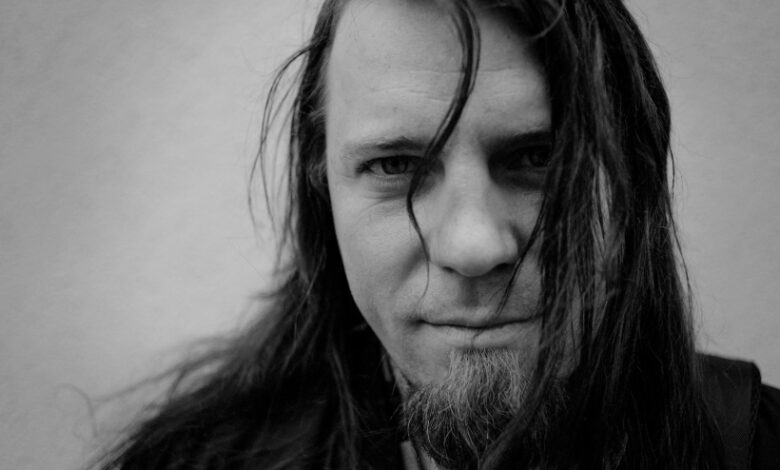
33 years old, musician. “They command you to run, but you don’t know where, and they laugh and beat you and pass you around from one person to another”
Viachka is sure: like most people who voted in August 2020, he was deceived by those in power. Then they launched a wave of repression and continue to destroy people’s lives to this day. After he had been harshly detained in August 2020, with his hair cut off in a prisoner transporter, beaten so badly that his bladder gave out, and then held in his underwear in the Akrestsina offender detention center, Viachka left the country. He has submitted an application to prosecute cases of torture of Belarusian protesters under universal jurisdiction in Lithuania. The young man says he will fight injustice until the end of his life. “And I’m planning to live a long life,” Viachka grins.
“I don’t remember if he had a cane, but he could hardly move. He tried to scale a parapet, and they threw a stun grenade at him”
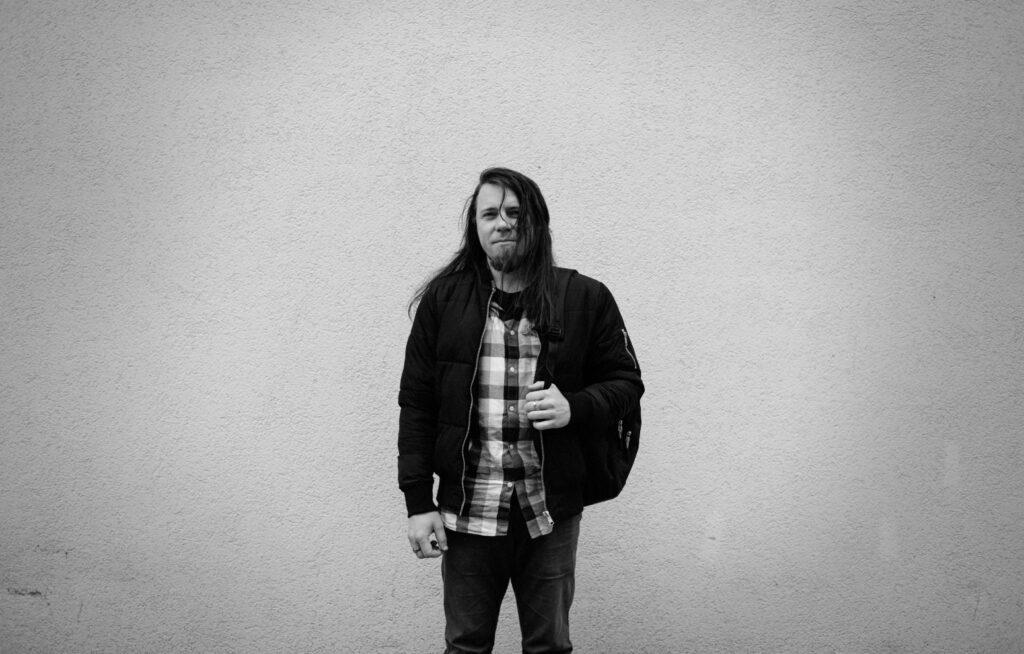
I was near Pushkinskaya subway station before being detained next to the Riga mall. We waited the “fireworks” out inside an apartment complex. It felt as if a war had begun. After that, I decided to hitchhike to the Riga night store. I arrived there and saw that people were building new barricades and security forces started a sweep operation. Everyone was running away, but I stayed behind. I was a little shocked: the “turtles” [riot police in tactical gear] appeared from all sides! Why did I slow down? I saw a man who was confused at first and then started running away. I don’t remember if he had a cane, but he could hardly move. He tried to scale a parapet, and a stun grenade was thrown at him. I froze: the dude was unarmed, it was difficult for him to move, and now this! It was a security forces officer who had thrown the grenade at him from a special vehicle with a “turret”. Later, a second law enforcer shot at the man with something that looked like a shotgun. He hit the man in the stomach.
I was stunned and overwhelmed, and I thought: what should I do? A guy wearing a white coat ran up to the man. Another stun grenade flew toward them. I stood about 20 meters away from them: it’s a good thing that I had put my headphones on earlier. I decided to help the men, but four “turtles” sprang out at us from around the corner. They beat me with batons and dragged me away. They wondered for a moment whether to throw me over the parapet where that man had been arrested. Another law enforcer showed up and said that they had to pull me up. Well, my thanks to him, because falling from a one-meter-high parapet would have been no fun.
“A dude clad in black punched me several times, lifted me by the hair, and cut it off in three strokes with a military knife”
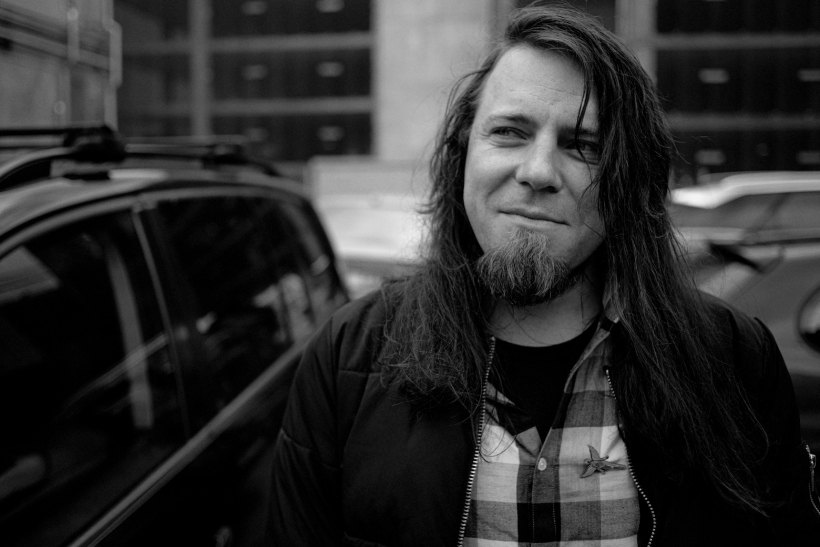
I was the first one in the prisoner transporter vehicle. A dude clad in black punched me several times, lifted me by the hair, and cut it off with three strokes of a military knife. In the transporter, they zip-tied me, threw me face down on the floor, and started kicking me in the back and head. Not the best feeling, but I was still somewhat dazed and didn’t really feel the pain. Then they brought a second person into the prisoner transporter: it was that guy in the white coat who helped the man that had difficulty moving. He was treated with respect, more or less. They asked him what he was doing there. The guy replied that he couldn’t put up with what was happening and went to help people. “Well done, but you went on to support the wrong people,” they commented. They sat him on the bench and didn’t even beat him that hard. Then they turned to me: “Look, here is a long-haired one!” They said I needed to be f*cked with a baton. I was lying there thinking: well, this has never happened to me before, it is time to try something new. The riot policemen took my backpack and found condoms in it. “Oh, look – he even came prepared!”
Then they turned to me: “Look, here is a long-haired one!” They said I needed to be f*cked with a baton. I was lying there thinking: well, this has never happened to me before, it is time to try something new
A new detainee saved me. It seems he was from Tajikistan. They immediately started mocking him: “Did you make your kebabs?” Kilotons of profanities! They were beating him, and he was screaming so hard! The lad was about 19–20 years old and spoke only broken Russian. I found out later that he was a Belarusian National Technical University (BNTU) student. He and a friend ventured out of their dormitory to see what was going on. Well, there you go.
People were gradually filling up the prisoner transporter. The policemen started putting them on top of me, and thanks to that I received way fewer blows. But when there are about 200 kilograms on top of you, your wrists begin to hurt in zip ties. You are lying face down and can’t breathe properly – all you can do is mumble to your neighbor from above to change their position. And those assholes yell: “Well, where’s your President Sveta [Sviatlana Tsikhanouskaya]? Where is the money you were paid to go protest?” There was some cash in my backpack. As soon as they saw it, all hell broke loose: “Look, a zmahar [an oppositionist, someone who opposes Lukashenko’s regime in Belarus] has received his pay!”
The search did not end there. “And whom do we have here from the Union of Belarusian musicians?” If you don’t reply, everyone gets beaten up. I answered, and they laughed.
“You are now a dissected rat yourself”
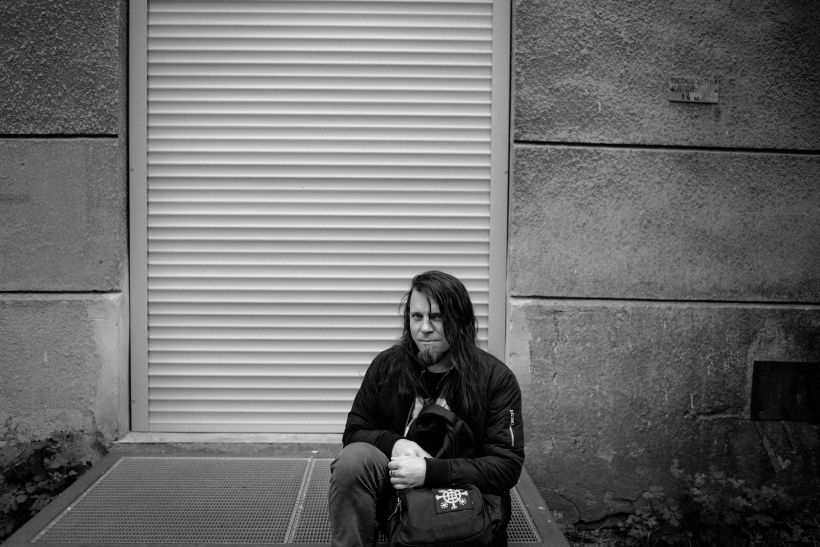
We were transferred from the prisoner transporter to a red minibus where I found myself on top. I got kicked in the stomach so hard I wet myself. At this point, they also ripped my pants. I could only joke that I hadn’t made it to the bathroom in time.
Then there was the next prisoner transporter, where people piled on top of me again. My head was wedged against a riot policeman’s leg. It was not much of a pillow. He most certainly felt that I was lying on his leg but didn’t move. They checked my phone and found photos from the scene. “Be careful not to break the phone,” they said and put it in my pocket in such a way that it wouldn’t get damaged even if I were beaten with a particular focus on hitting the kidneys.
I hoped that they would not be driving us around for long. As far as I can tell, we had ridden for about 40 minutes. We could hear an iron gate opening. My first thought was that we’d arrived in Zhodzina. We got off the prisoner transporter, and they chased us through the “corridor” yelling: “Run! Face down to the floor! Don’t look.” It was dark in the transporter vehicle: once you’d run out, you couldn’t see anything and would get hit from behind. I ran into a circle of law enforcers who were between 35 and 50 years old, and that’s where I got a cut under the eye. The mark will remain forever.
You could hear them having fun. They tell you to run, but you don’t know where, and they laugh and beat you and pass you around from one person to another. “Stand against the wall! Which one? You gotta be kidding me?! That one! Are you that f*cking stupid?”
While we were standing against the wall, they would “refresh our memory” on how to stand: on our knees, with our heads against the fence. If one’s pelvis jutted out too much, that person would be beaten. After a few hours, I was allowed to lie on the ground, at which point, as I found out later, the Belteleradiocompany (BTRC) staff arrived. They were looking for people who had tattoos. I have the Ouroboros symbol on my arm. I started explaining it but couldn’t see who was talking to me. It would be funny if it was Ryhor Azaronak [a host of a propaganda TV show on one of state-controlled TV channels]. But all I heard in response was a voice saying, “I know what Ouroboros is, and I don’t need you to explain it to me.” I thought: “Oh, it must be a smart man talking to me” (Viachka laughs).
I have a tattoo of a dissected rat on my other arm. “You are now a dissected rat yourself,” I was told. I didn’t joke back because I knew I would be beaten. I sat silently looking down at the floor, and next to me was a man whose body was covered in tattooed swastikas. No wonder they made him a “star” of their TV coverage. The man with the swastikas was also quite beaten up. “F*cking motherf*cker, our grandfathers went to the Great Patriotic War against Nazis! We are so going to mess you up…” those were the words that accompanied their actions.
Then they also interviewed Viktar Kniha who was there with us as well. It is a shame that the man who’d just gotten out of prison and found a job was portrayed as a terrorist and protest organizer. Some Russian blogger was lying on the other side. He was badly beaten too. “Oh, you must be a spy! Have you come to f*cking support our opposition? We’re going to f*cking make mincemeat out of you!”
“Someone started groaning and asking for an ambulance and doctors”
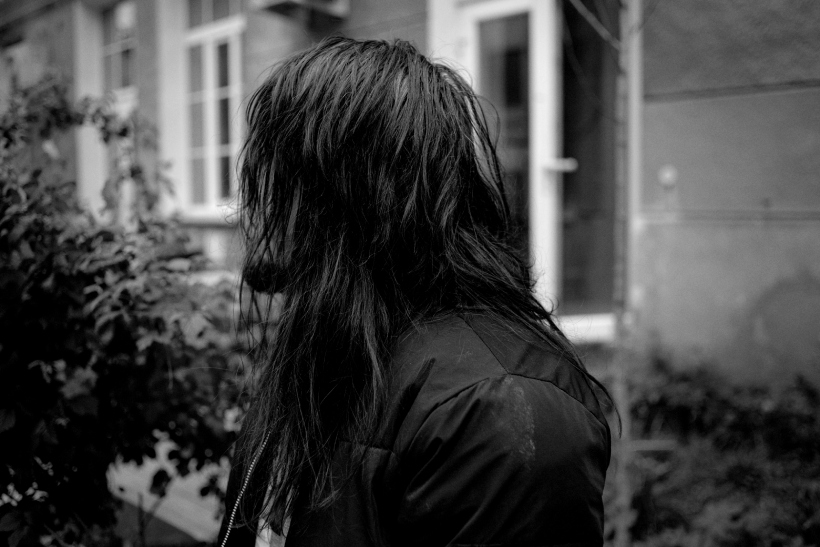
After a while, they made us stand against the wall again. The riot police had gone elsewhere just as dawn began to creep in over the horizon. The guards in the place where we were – and I don’t know where we were – started demanding that we lie down on the ground. “But if we tell you these guys are coming back, you need to get up immediately.” Someone started groaning and asking for an ambulance and doctors. The riot policemen came back, beat us, and left laughing. Zip ties put a lot of pressure on our wrists, and many people started complaining. The policeman said he could only loosen zip ties up for one person every 30 minutes if it was really that bad.
Two women in white coats came at around 8 am. They rinsed some people’s wounds with hydrogen peroxide and applied iodine solution to others’. They told me, “Ah, well… You’re fine”, and washed my face with hydrogen peroxide. I asked if anything could be done to get my hair back, and the answer was, “We can only trim it.” I wanted some painkillers for my head. “You’ll get some later.” They showed us zero compassion, or maybe they just didn’t let on that they felt sorry for us. Perhaps, they reacted that way because they had seen people beaten to death, and all I had was a battered head.
“F*cking hell, I’ll punish them all here!” It turned out that this Zhenia was the warden of the Akrestsina offender detention center.
They started dragging us one by one to an investigator. But when your brains are sort of bashed in, you will be slow. “Are you f*cking stupid? Why are you so slow? I said ‘there’!” You don’t know where you’re going because all you hear is, “Let’s go, don’t look to the sides! F*ck, don’t look up! Look the f*ck down! Are you f*cking stupid?” You realize that you don’t understand anything, and then this “psychologist” gives you the attitude. Our backpacks were loaded into a white construction bag, phones were packed into the same bag, and they wrote “Riga” with a red sharpie. They added that we were all f*cked because we had been arrested in a place like this [the Riga mall neighborhood, known for large-scale protests], and one could face up to 25 years in prison for that. This “encouragement” was very “refreshing”.
We were made to stand against the wall in a courtyard then. A man came in and started giving us sh*t, coming up to and beating everyone. He kicked and hit me with a baton for allegedly throwing Molotov cocktails. “Hey you, four-eyed!” he turned to a scrawny young man wearing glasses and started beating him. “Oi, Zhenia! What are you doing? Stop it!” “F*cking hell, I’ll punish them all here!” It turned out that this Zhenia was a warden of the Akrestsina offender detention center. He told us not to look off to the sides, but I peeked anyway and was able to identify him afterward.
“It’s a good thing that I didn’t admit I was a musician. People got their fingers broken when they asked the police not to beat them on the hands.”
I was able to talk to other detainees in the courtyard only. That’s when I found out we were in the Akrestsina detention center. A man said he had been beaten so badly that he soiled himself. In the end, he threw the dirty underwear down the manhole in the courtyard. There were about 30 of us. They only brought a two-liter bottle of water for all of us. Later, those who were taken to the bathroom would fill the same bottle with water and bring it back.
In the evening, we met with the investigator again. He told me to sign the report. I asked him: “You wrote down everything I said verbatim, didn’t you? I’ll check then.” Let’s put it this way: the conversation was just for show. He tried to ignore some “minor nuances” such as the way I looked. They removed my zip ties so that I could sign the report. Oooh! It’s a good thing that I didn’t admit I was a musician when they put them on. People got their fingers broken when they asked the police not to beat them on the hands.
In the courtyard, the zip ties were tightened again. I couldn’t take it anymore after another hour. A policeman saw that my hands were blue and felt sorry for me. He cut the zip ties and ordered me to pretend they were still on me. When I was allowed to stand up, I felt much better.
Beach boys’ cell
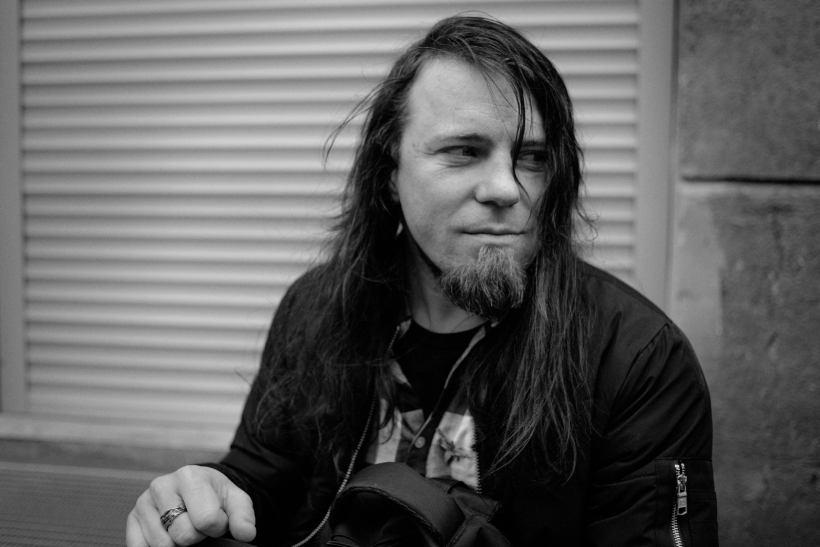
They led me out of the courtyard “politely”: they beat us everywhere but in the head. They put everyone against the wall and ordered us to take off everything except our underwear. So, cell number 8 became the “beach boys'” cell. But how glad we were that there was a water tap. There was no food or toilet paper, but the bathroom had a door.
When they took me to other investigators, they again gave me some reports to sign, in which they wrote some bullsh*t. I realized that I couldn’t not sign it because there stood a virago in a black uniform with two policemen next to her. Tough! According to the police reports, I shouted, “Stop the cockroach!” and “Freedom to Statkevich!” [Mikola Statkevich, a Belarusian oppositionist]. In fact, I do not support Statkevich at all.
The lights in the cell were always on. There were 40 of us in the six-person cell. There were no mattresses, just bare bunks. By the way, Azaronak recorded footage of our cell. I had slept on the table where he was later sitting. The wooden floor was old but painted. On the morning of August 12, they brought us bread and tea-colored water. That was a breakthrough. They even gave us a little food for lunch. I think they gave us barley porridge. I didn’t feel like eating and didn’t get much sleep at night due to stress. We hardly spoke to each other in the cell. It turned out that there was a student from my university who didn’t recognize me because of my battered face and hair that stuck to the wounds. The guy who’d been pulled out of a car in Kamennaya Horka [a Minsk neighborhood] remarked that the detention revealed who was who. And all kinds of dirt would surface.
“Among the people in the cell were several minors. One of them had been beaten in the head so badly that he kept talking to an invisible friend…”
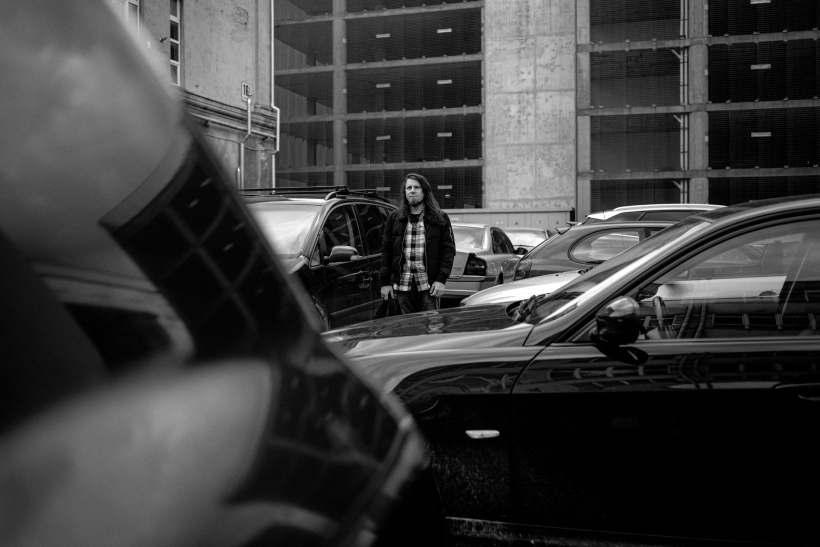
Among the people in the cell were several minors. One of them had been beaten in the head so badly that he kept talking to an invisible friend, to whom he said: “Give me a knife, I’m going to kill everyone here.” I don’t know how he is doing now. I feel sorry for him.
During my next “date” with the investigator, they recorded a video of me showcasing all my tattoos and said: “You must be an anarchist.” I find the theory of anarchism a beautiful utopia, which I do not support. That’s why I joked a little bit about it. When they found out what kind of education I had and where I was employed, their cigarettes “fell out of their mouths” – they were so surprised.
When they were taking us back and forth, a riot policeman told us that we should be careful because many HIV-infected people were in the cell. I returned to the cell and shared this information. And the guy with the swastika tattoos said: “Yes, I have HIV.” Eh… I was sitting next to him all the time, we drank water from the same bottle, and he was all beaten up. It would be too bad if I contracted it from him.
On August 12, they began to look up and verify our relatives’ contact info so that they would bring clothes for us, the “beach boys”, before the trials. They started giving us toilet paper. The items my mom had brought never reached me, though. Our trials took place on the building’s top floor, and we were sitting there in the same underwear. There would be only three people in the tiny office: a judge, a secretary, and a defendant. The judge was wearing a mask, and so was the secretary. But their eyes… You could still see their emotions. I could see that the judge was astounded and felt sorry for me. But the system screwed us over, and I got 11 days of detention. Some defendants were immediately given paperwork indicating that they were suspects under Article 293-2 of the Criminal Code (participation in mass disorder). One could see that people in the cell were shocked. Two guys, who celebrated their 18th birthday behind bars, had thrown stones from the roof of the Riga mall. It was abundantly clear that they would be charged under Article 293-2.
On August 13, we were given three meals, and those were “delicious”. On the night of August 14, the lights went out for half an hour, and the riot police vanished. We used to hear them all the time, and we heard them beating people up. It felt like the conditions were getting more bearable. They started moving people from one cell to another. They took me to new investigators who told me that I would be a witness in a mass riot case. They also asked if I had information or photos on my phone.
When they moved me to a four-person cell, the Tajik lad from the prisoner transporter turned up. We talked, and I hope he realized that Belarusians were okay people and not beasts like the riot police. They gave us lunch, the meal even had meat in it! And then I was back to the “beach boys'” cell. How spacious it had become!
My mom thought that my outspokenness would be the death of me, so she wrote a mini-story about how she felt. The ending goes something like this: “Though he’s broken, he is alive and smiling.” I sometimes reread it and cry
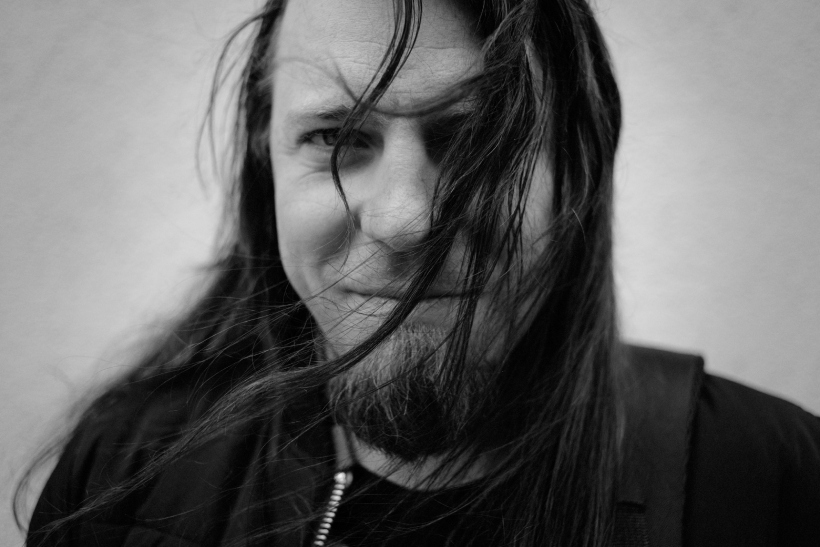
They started releasing us on August 14. Albeit, at the time we thought they were transferring us to the Zhodzina prison. They asked where to take us, and we were released somewhere in the vicinity of the Frunzenski district police department and the Kalvaryja cemetery. Volunteers arrived a minute later: they figured out that the prisoner transporter was taking detainees away. I asked them to take me back to Akrestsina Street. I felt that my loved ones were waiting for me there. Later, I found out that my name showed up on the detainee list at the Akrestsina detention center only once. My mom had a nervous breakdown due to this: it was unclear where I was and if I was alive at all. My mom thought that my outspokenness would be the death of me, so she wrote a mini-story about how she felt. The ending goes something like this: “Though he’s broken, he is alive and smiling.” I sometimes reread it and cry. It’s nice to know that you are so loved.
They wanted to admit me to the Minsk city emergency hospital, but I refused. I took a lot of medicines with me and went to a police department to submit a statement about the beatings I’d endured. I got a second referral to document physical abuse. That was on Friday. As of now, no one knows where my documents are. They called on Monday and invited me “for a talk”. I contacted a lawyer and came to the Investigative Committee with her. It seems that the investigator felt offended about it and complained to someone over the phone, saying something to the effect of: “Comrade Chief, it’s such a force majeure, I did not know that he would be here with a lawyer.” He tried to dismiss my lawyer under the pretense that he was going to examine my beaten body. The lawyer said she had a medical degree and was not afraid of battered people. In the end, I was never left alone with the investigator.
It turned out that I was now a suspect. My heart sank. It was clear that I would be on their radar for a very long time. My mom advised me to leave the country. I got a new passport and a visa from the Lithuanian embassy as quickly as possible. I left Belarus the same day the visa was ready. I left my whole life behind and only took my musical instruments.
P.S. In early February 2021, while in Lithuania, Viachka submitted an application requesting the use of the universal jurisdiction principle in cases of inflicting torture on Belarusian protesters. He says it is the only thing he can do against the “mustachioed regime” right now.
Author: August2020 project team
Photo: August2020 project team
